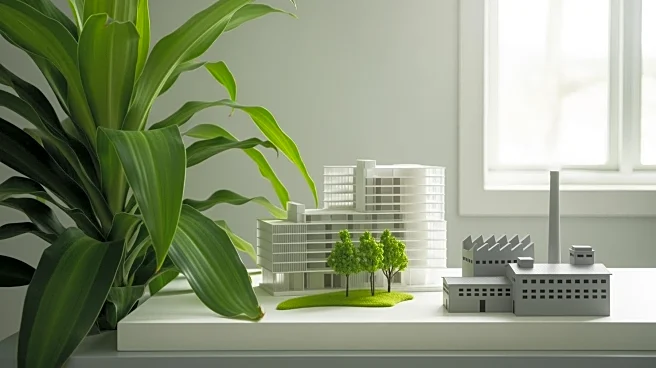What's Happening?
A recent study has focused on the spatiotemporal dynamics of production, living, and ecological space coordination in Ganzhou City, located in Jiangxi Province, China, from 2000 to 2020. The research divides
the city into 10 km grid cells to evaluate the functional scores for production, living, and ecological land use. Using a multi-factor weighted summation method, the study assesses the spatial relationships among these functional areas. The study employs a ternary coupling coordination model to compute the degree of interaction and coordination among the three spaces, revealing insights into the changes and trends in spatial coordination over time. The research highlights the challenges of balancing urban development, industrial growth, and ecological preservation in a rapidly developing region.
Why It's Important?
The study's findings are significant as they provide a framework for understanding how urbanization and industrialization impact ecological spaces. This research is crucial for policymakers and urban planners aiming to achieve sustainable development in rapidly urbanizing regions. By identifying the spatial and functional dynamics of production, living, and ecological spaces, the study offers valuable insights into how these areas can be managed to promote balanced and sustainable growth. The implications extend beyond Ganzhou City, offering a model that can be applied to other regions facing similar challenges of urban expansion and environmental conservation.
What's Next?
The study suggests that future efforts should focus on enhancing the coordination among production, living, and ecological spaces to ensure sustainable development. Policymakers may consider implementing strategies that prioritize ecological protection while accommodating urban and industrial growth. The research framework could be used to monitor and guide development policies, ensuring that they align with sustainable practices. Additionally, further studies could explore scenario-specific variations to refine the model and adapt it to different regional contexts.
Beyond the Headlines
The study underscores the importance of integrating ecological considerations into urban planning. It highlights the need for a balanced approach that values ecological preservation alongside economic and social development. This research could influence future urban planning policies, encouraging a shift towards more sustainable practices that prioritize long-term ecological health. The findings may also prompt discussions on the ethical responsibilities of urban developers and policymakers in preserving natural environments amid rapid urbanization.












